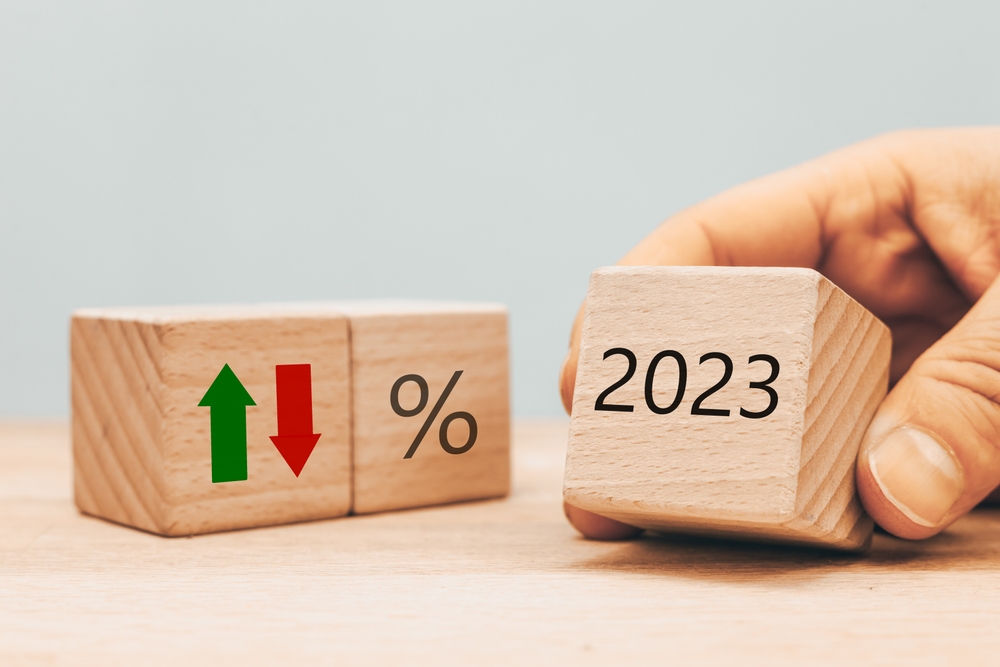Household Bills
Gloom to glimmer of hope as inflation eases to 6.8%

The downward trend in inflation continues as the figure fell back to 6.8% in the year to July, taking it to levels last seen in February 2022.
The Consumer Prices Index (CPI) measure of inflation fell 1.1 percentage points from the 7.9% recorded in the year to June.
According to the Office for National Statistics (ONS), the figure was down owing to falling gas and electricity prices.
Food prices remain elevated and while they are still rising, they’re increasing at a slower pace.
The ONS stated that the slowdown in the annual rate between June and July 2023 was a result of prices falling by 0.3% on the month compared with a rise of 0.6% a year earlier.
Hotels and airplane spending provided the largest offsetting upward contribution to the change in the rate.
While this will provide some relief to shoppers, core inflation which excludes volatile food, energy, alcohol and tobacco prices remained at 6.9% in the year to July.
What does this mean for interest rates?
Inflation is cooling but it’s still a long way from its 2% target. While it seems the Bank of England’s monetary policy is working – 14 consecutive base rate (interest rate) hikes from 0.1% in December 2021 to 5.25% now in a bid to combat soaring inflation – there is a lag to its desired effect.
Marc O’Sullivan, head of investments at financial mutual, Wesleyan, said: “Monetary policy operates with a long time-lag so we believe the Bank of England will eventually pause its sequence of consecutive rate rises in the coming months, not least to monitor the impact that higher interest rates will be having on the consumer and therefore the economy.”
However, analysts suggested that yesterday’s record wage growth of 7.8% – a higher figure than the falling inflation figure could mean it keeps inflation elevated for longer.
Giles Coghlan, chief market analyst, consulting for HYCM, said: “In theory, rising GDP and falling inflation figures should be good news for the UK economy. However, other indicators show that the UK’s inflation fever shows no signs of breaking soon.
“Although the headline rate of inflation has declined to 6.8%, the latest data suggests that strong wage growth is likely to keep inflation elevated – not to mention more persistent – in the coming months. The Chancellor has already forewarned that wage growth and an uptick in clothing prices could see inflation rebounding again in August, tempering any optimism that today’s release may produce.”
This is echoed by Jatin Ondhia, CEO of Shojin, who said: “It’s good news today, but there are strong rumours that next month’s data will show a rise in inflation once again. This story is far from over. Rishi Sunak and Jeremy Hunt’s target of bringing inflation under 5% by the end of the year is looking increasingly out of reach, and that will have implications on consumers, investors, businesses and the financial markets.
“Inflation remains too high, and if indeed it does start to rise again in the final months of the year, we have to expect the Bank of England to come hard with more interest rates hikes. As borrowing becomes more expensive, this will inevitably further impact house prices and property development.”
And for Oliver Rust, head of product at independent inflation data aggregator truflation, another 50 basis point rise could be on the cards.
He said: “With wage increases now outstripping inflation, embattled UK consumers will finally have more disposable income to spend, which will only prolong the battle against inflation.
“In this environment, the BoE can’t afford to stop its monetary tightening policy any time soon. We believe at least another 50 bps interest rate hike is needed to begin getting inflation under control. However, the effects of this policy – just like the effects of Brexit – will take a while to come through, so the time to celebrate is still a long way off.”